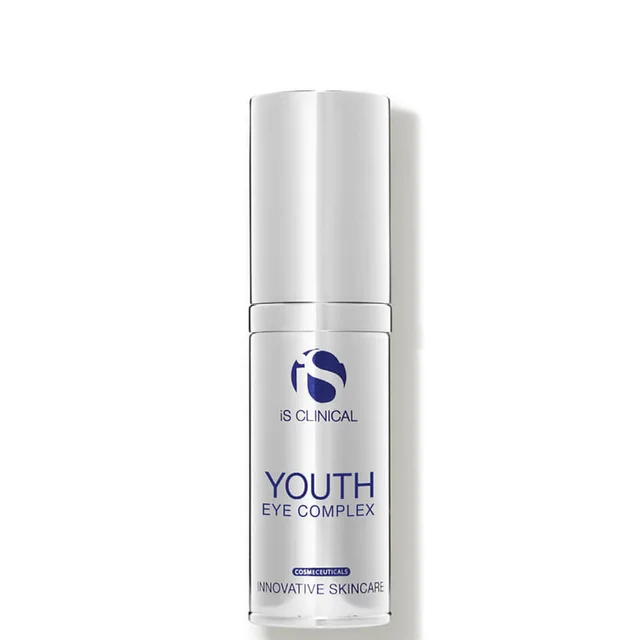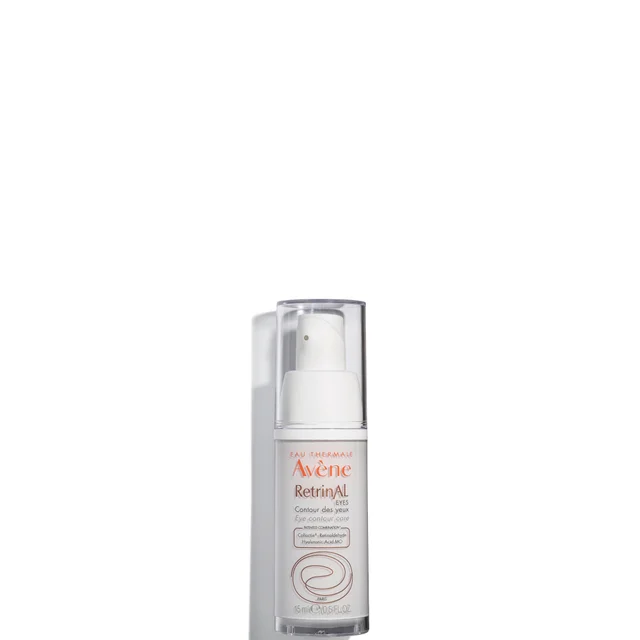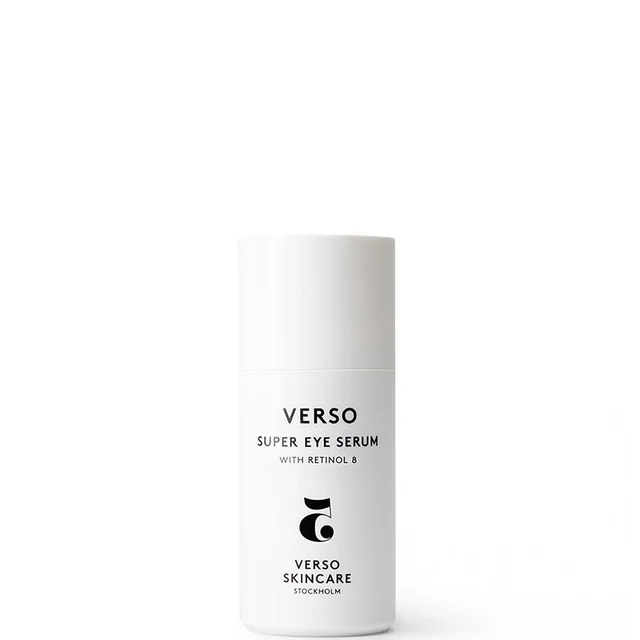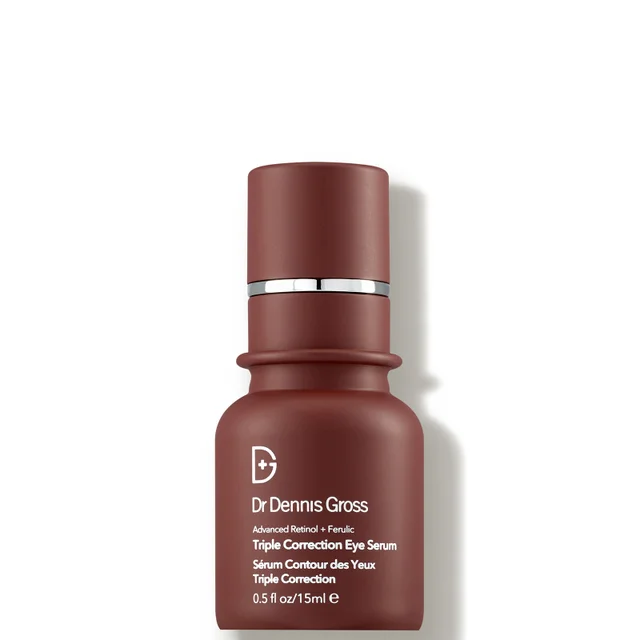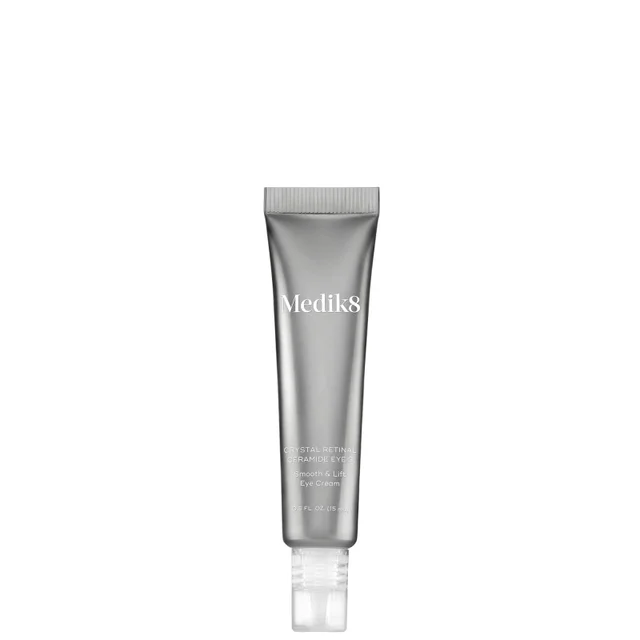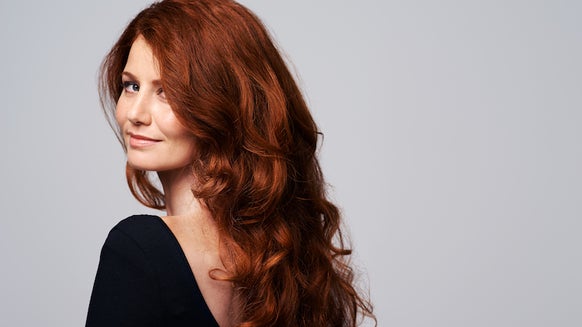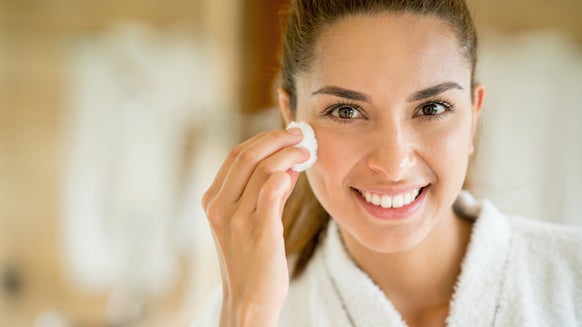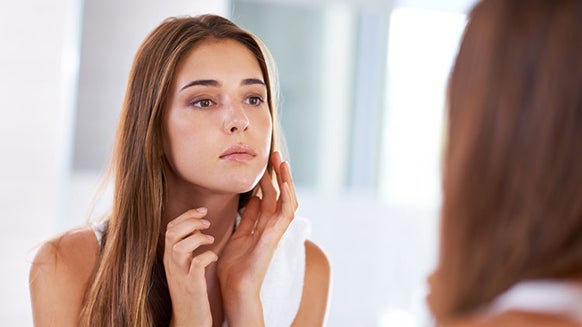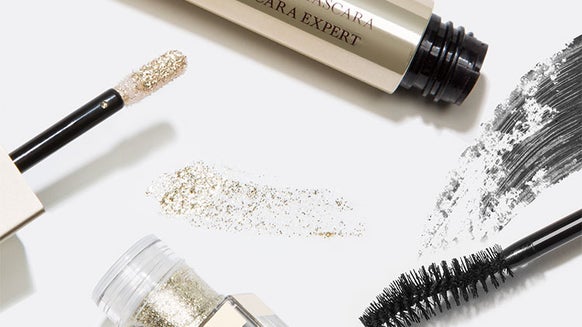5 Benefits of Using Retinol Eye Cream, According to Dermatologists
When it comes to skincare ingredients that can turn back time, retinol reigns supreme. The dermatologist-loved ingredient is one that does it all—from clearing your complexion of acne to fading discoloration—but its most known claim to fame is its anti-aging properties that stop fine lines and wrinkles right on their tracks. And that includes those stubborn creases and sagging skin in the eye area. So, if you’ve had just about enough of crow’s feet, puffiness, and tired-looking eyes, then you’ve come to the right place. We talked to top dermatologists and skincare pros to give you the scoop on all the benefits of using retinol eye cream, plus, expert tips on how to use it on your extra-delicate eye area.
Meet the Experts
Dr. Dahlia Rice, board-certified plastic surgeon and founder of DMR Aesthetics Dr. Daniel Behoorzan, Persana verified physician and founder and director of the Dermatology Institute of Southern California. Dr. Mary Alice Mina, a double-board certified dermatologist and dermatologic surgeon and host of the The Skin Real podcast.
How to Apply Retinol Eye Cream
Here’s the thing: Retinol is a heavy-hitting active ingredient that takes its job seriously, and sometimes, this can lead to irritation, dryness, and sensitivity for those whose skin is yet to adjust to its potency. This is especially true for the eye area, which is up to 10 times thinner than the rest of the skin in the body. So, while you may already be using a retinol moisturizer for your face, it may not be doing your under-eye area any favors. The solution? Choosing a retinol treatment that is specifically formulated to address the concerns of the delicate eye area.
For retinol newbies, the general rule is to start low and slow. Opt for a low-dose retinol formula when introducing your skin to the active ingredient for the first time and gradually increase the frequency and strength as your skin gets used to the product. “Some people can only tolerate topical retinoids once or twice weekly, so you will have to see how your skin responds. Most importantly, go slow and always remember that less is more,” reminds Dr. Daniel Behoorzan, Persana verified physician and founder and director of the Dermatology Institute of Southern California.
Apply your retinol eye cream after serums and before your face moisturizers. Take a pea-sized amount and tap small dots on your under-eye skin. Some eye creams are formulated to be applied on the eyelids as well, otherwise make sure to keep your application in the under-eye area and avoid contact with the eyes. Gently dab the product on the skin until it disappears, and refrain from tugging, stretching, or rubbing the skin.
Benefits of Retinol Eye Cream
1. Keeps fine lines and wrinkles at bay
Because the skin under the eyes is more fragile, it’s prone to dryness and tends to be one of the first places to show signs of aging, such as fine lines, wrinkles, and crow’s feet. Retinol works by encouraging the production of the proteins collagen and elastin, which are both essential in helping the skin make new cells and maintain its youthful appearance. “Retinol is one of the most effective ingredients for addressing signs of aging,” explains Dr. Dahlia Rice, board-certified plastic surgeon and founder of DMR Aesthetics. “Retinol eye creams specifically target fine lines, crow’s feet, and uneven skin tone by stimulating collagen production and enhancing cell turnover.”
Featured Product: iS Clinical Youth Eye Complex
If crow’s feet, fine lines, and wrinkles are starting to make their presence known in your eye area, then it’s time to arm your skin with this anti-aging eye treatment. With a blend of retinol, peptides, and antioxidants, it also helps with de-puffing the under-eye skin and brightening dark circles, delivering both immediate and long-term results.
Key Ingredients: Vitamins A, C, E, Retinol, Hyaluronic Acid, Peptides
Skin Type: All skin types
Beauty Insider Tip: This eye cream can be used both morning and night, so make sure to apply sunscreen during the day to prevent sun sensitivity.
2. Brightens Dark Circles
Periorbital hyperpigmentation, otherwise known as dark circles, is one of the most stubborn under-eye concerns and is notoriously challenging to treat. It can be caused by several things, including lack of sleep, genetics, rubbing, dehydration, and lifestyle habits like smoking and excessive alcohol consumption. These cause blood vessels to break or dilate and show through the skin, leading to discoloration. Dark circles can also form when the skin around the eyes loses fat and collagen, causing the skin to sag, become thinner, and appear hollow. Shadows cast by puffy eyelids on this hollow area can also give the appearance of dark circles.
Retinol’s collagen-boosting properties help in plumping up the skin under the eyes and counter the natural decline in collagen production that comes with aging. “Retinol is a vitamin A derivative and a game-changer for cell turnover and collagen production, which reduces the appearance of fine lines, discoloration, and improves skin texture,” adds Dr. Mary Alice Mina, a double-board certified dermatologist and dermatologic surgeon and host of the The Skin Real podcast.
Featured Product: Avène Retrinal EYES
Sometimes, what we often mistake for dark circles are actually shadows cast by puffy eyelids on the under-eye area, especially when it starts to sag and look hollow from loss of fat and collagen. Luckily, this eye treatment addresses all these skin woes—it boosts collagen production to nip signs of aging in the bud, plumps and firms skin, reduces puffiness, and improves dark circles and uneven texture.
Key Ingredients: Retinol, Hyaluronic Acid
Skin Type: All skin types
Beauty Insider Tip: In the evening, dab a tiny amount of the product from the outside corner of your eyes and gently dab inward.
3. Smooths and Evens Skin Tone and Texture
The fragile skin around the eyes is more prone to dryness, creping, and skin conditions like milia that can affect the complexion’s tone and texture. While exfoliating with AHAs and BHAs can help in smoothing things out, these acids may be too harsh for the fragile skin around the eyes. That’s where retinol comes in. Retinol is known to hasten cell turnover or the skin’s ability to create new and healthier cells, which then helps in renewing the skin’s surface. “Regular use can improve skin texture, reduce wrinkles, and promote a more youthful, smoother appearance,” adds Dr. Rice.
Featured Product: VERSO Super Eye Serum
This anti-aging eye serum may be lighter on the pockets than other eye treatments, but it packs a heavy punch when it comes to diminishing signs of aging and improving tone and texture. Infused with a potent retinol complex, it reduces puffiness and refines the appearance of creping skin while softening fine lines, wrinkles, and crow’s feet.
Key Ingredients: Retinol 8 Complex, Amino Acids, Antioxidants, Peptides
Skin Type: All skin types
Beauty Insider Tip: With its clean and gentle formula, this eye serum can be applied around the eyes both day and night.
4. Firms and Tightens Skin
Nobody likes excess baggage, especially in the eye area. Unfortunately, loss of firmness and sagging skin are two of the most common skin woes plaguing this ultra-delicate part of the face, which leads to a thinner, sagging, and hollow-looking under-eye area as well as eyelid skin that appears loose or droopy. Loss of fat and collagen are the main culprits behind loose and sagging skin, but it can also be made worse by overexposure to the sun. By amping up your skin’s production of collagen and elastin, retinol helps in firming, tightening, and thickening the skin in the eye area.
Featured Product: Dr. Dennis Gross Skincare Advanced Retinol + Ferulic Triple Correction Eye Serum
Awakened, younger-looking eyes are no longer just a dream with this advanced serum that transforms the appearance of dull, tired-looking eyes. Harnessing the combined effects of the latest retinol technology and its natural alternative, it visibly lifts, tightens, and plumps the eye area and improves the look of droopy lids, wrinkles, and crow’s feet.
Key Ingredients: Trans-Retinol and Encapsulated Retinol, Ferulic Acid, Bakuchiol
Skin Type: All skin types
Beauty Insider Tip: This serum imparts complete renewal for the eye area and can be applied to the lids and elevens—the area between your brows that form vertical lines when frowning
5. Good for All Skin Types
You may have read or heard somewhere that retinol isn’t a good idea if you have dry or sensitive skin. While it’s true that retinoid use can often result in “purging,” which includes sensitivity, flaking, and even breakouts, this condition is temporary and is a typical reaction as the faster cell turnover forces impurities out of your skin and into the surface. Besides, not all retinoids are created equal. Some forms have a much higher potency than others and require a prescription, so those with sensitive skin can opt for gentler, lower-strength options.
Retinol, in particular, is a type of retinoid that’s well tolerated by most skin types, including dry or sensitive skin. The trick, according to Dr. Mina, is to play it safe to nip unwanted reactions. “Retinols are great, but some caution should be taken when starting off,” Dr. Mina suggests. “You can add a moisturizer before or after or both (sandwich method) if you are experiencing dryness and peeling. And be sure to wear your sunscreen during the day.”
Featured Product: Medik8 Retinal Ceramide Eye Serum
For beginners, figuring out what retinol product to start with often brings a lot of confusion, and that’s why we love that this eye cream has made the task much easier for everyone. Available in three strengths, this lightweight eye cream is an all-in-one solution that imparts noticeable, progressive results. It smooths the appearance of crow’s feet, lifts the eye contours, and brightens the look of dark circles. The best part? It’s ultra slow-release retinaldehyde ensures the gentlest delivery to even the most sensitive skin.
Key Ingredients: Retinaldehyde, Shea Butter, Squalane
Skin Type: All skin types
Beauty Insider Tip: New to retinol? Start with lowest strength (0.03% retinaldehyde) and slowly work your way up as your skin becomes more tolerant of the ingredient.
FAQs
Can You Use Retinol Eye Cream Every Day?
Some skin types, especially those that are already well-acclimated to retinol, can tolerate daily use of the active ingredient, but ultimately, this is one question only your skin can answer. “Whether you can use it daily depends on your skin’s tolerance, but generally, it’s not recommended to use it every day at first,” says Dr. Rice. So, if you’re just starting your retinol eye cream journey, it’s best to not rush into things. “Initially, use retinol eye cream two to three times a week and gradually increase frequency as your skin builds tolerance,” Dr. Rice says. “Retinol can cause dryness, redness, or irritation if overused or applied too frequently, so always follow up with a good moisturizer and sunscreen during the day.”
Does Retinol Tighten Skin Around the Eyes?
Because retinol can sometimes cause peeling and flaking as part of the purging process, it’s often assumed that the active ingredient causes thinning skin. However, not only is this false but quite the opposite is true. Retinol’s collagen-boosting action allows for the thickening of the outer layer of the skin resulting in a more even texture and a firmer, tighter complexion.
The Bottom Line
Few other ingredients can rival the anti-aging wonders of a retinol eye cream. Thanks to its ability to speed up cell turnover and boost the production of collagen and elastin, retinol helps in fading fine lines, wrinkles, crow’s feet, and dark circles while alleviating puffiness and uneven tone and texture. And while retinol is known for being a highly potent ingredient, retinol eye creams are expertly designed and formulated to impart their youth-preserving benefits without irritating or drying out the extra-sensitive skin around the eyes.

Janeca Racho is a Journalism graduate with over 15 years of writing experience. After getting her start in public relations and advertising, she made the switch to freelance writing and began working for various lifestyle, fashion, and travel brands. Her love for all things skincare has led her to beauty reporting and research for the last ten years. Writing for several hair and beauty blogs, she reports on anti-aging staples, trending brands and products, must-have ingredients, and health and wellness.
Related Posts
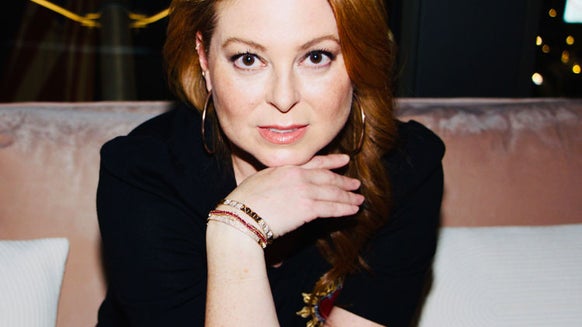
Celebrity Facialist Joanna Vargas Reveals the Top Skin Care Mistake to Avoid

